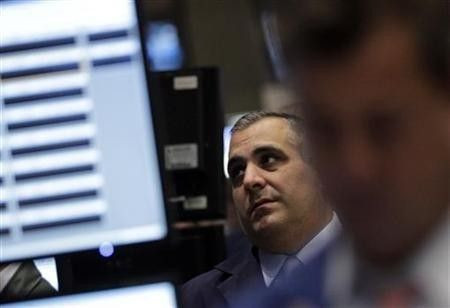Depression? No. Depressed? Yes!

Tom Sowanick, Co-President and Chief Investment Officer at Omnivest Group in Princeton Junction, N.J.
Yesterday, a highly valued client of ours posed this question to us: ”Do you think that we are headed towards a depression?” It is not clear to me what event triggered the question, but my answer was a resounding “No”.
However, I said that there were plenty of things to be depressed about.
For example, why is it that so many homeowners are unable to either refinance their mortgages or take out a home equity loan? The answer is: government regulation.
Why is it that our quality of life is in decline? The answer is: government regulation.
In addition, the consumer is being forced to take on an ever-increasing burden of rising healthcare costs.
Why is that corporations have changed from defined benefit plans to defined contribution plans, to now, do it yourself 401ks?
Because underfunded corporate pension funds have to state the degree of the underfunding with quarterly earnings, and these figures are downright depressing.
Why is a rising share of college students in the US not US residents?
The reason is that we fail to value, as a society, the gift of education. It is a right and not a privilege to attend college in the US
Why is it that not one single Wall Street CEO has been incarcerated because of the near financial collapse of the US financial system?
I have no answer for this one, but it begs for an answer from someone.
Why is it that the elderly in the US cannot live off their savings?
Because the Federal Reserve is quite concerned that the US economy may enter into a double-dip recession or worse - a depression - by raising rates from their current level of 0 percent.
Why is the unemployment rate so high in the US but in particular with minorities and the undereducated?
Because we have experienced extended unemployment benefits for a solid year for political gains. In addition, we have lost the real estate development and construction industries, a key driver of employment.
Why are we suffering from inflation?
In part because of the weak US dollar, in part because of poor crop production, and, in part because of increasing demand
from a growing emerging market consumer.
Why are energy prices so high if the economy is only sputtering along?
Because the US is only a part of the global economy and we now consume less Saudi oil than China. In other words, we now compete globally for resources.
Why do we see property taxes rising when we also see our home values declining?
How about years of mismanagement of local government expenses, as an answer. Local governments like to use the argument that lower real estate values are a short-term phenomenon, and that therefore taxes should not be lowered. This seems to work quite well for them, but not so great for us, who are impacted by this issue.
And while this list is clearly not complete, it serves the purpose of indentifying some of the reasons why many people believe the US economy is heading into another depression.
Again, our view is that the fear of depression is misguided, but being depressed is understandable.
While things feel dark and there are plenty of reasons for investors to be nervous, we remain quite sanguine about the prospects for a second half rally.
First and foremost is the likelihood that the Federal Reserve will keep interest rates at near 0 percent for the balance of the year.
Corporations have approximately $1 trillion in cash, which can be used to raise dividends, buy back stock or engage in merger activity. Additionally, corporations will likely engage in capital spending programs to take advantage of the generous 100 percent depreciation which will drop to 50 percent at the start of next year.
Other tax incentives may be offered by Congress this year to spur economic development and job creation.
On a relative value basis, stocks look remarkably inexpensive in comparison to the debt markets. For example, the earnings yield of the S&P 500 Index is approximately 8 percent and that compares quite favorably with 3.7 percent for the corporate bond market. Real yields (interest rate minus inflation) are less than 0 percent for nearly the entire Treasury market. On average, the real yield of the corporate bond market is only at 0 percent.
Therefore, investors looking to at least keep pace with inflation will have to source investments other than traditional fixed income securities.
Finally, it is our view that most investors who fled the equity market in 2007-2008 have yet to return in any significant way.
And while the volatility of the past several weeks will likely keep most investors at bay from entering the market near term, it is our belief that those investors who are willing to step in will be well rewarded over the next year.
Remember how bad the investment environment was a year ago? Investors were panicking and selling into weakness. However the equity market bottomed in July 2010 and has since rallied 26.4 percent as of June 16th 2011. Hence, panicking traditionally has been a costly mistake which we want to try and deter this time around.
© Copyright IBTimes 2024. All rights reserved.





















